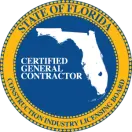Finding a Reliable Storm Damage Roofing Contractor
When a severe storm hits, the aftermath can be devastating, especially to your home’s roof. Ensuring that you find a reliable storm damage roofing contractor is crucial to restoring your home’s safety and integrity. This guide will walk you through everything you need to know about identifying and hiring the right professional for the job.
Understanding Storm Damage
Storms come in various forms and can wreak havoc on your roof. From hurricanes and tornadoes to hailstorms and heavy rains, understanding the type of storm damage your roof has sustained is the first step in the repair process.
Types of Storms Affecting Roofs
Each storm type can cause different kinds of damage. Hurricanes and tornadoes bring strong winds that can lift shingles, break tiles, or even tear off entire sections of the roof. Hailstorms can create punctures and dents, while heavy rains can lead to leaks and water damage.
Signs of Storm Damage
Identifying storm damage can sometimes be straightforward, such as seeing missing shingles or visible leaks. However, subtle signs like bruised shingles, granule loss, and water stains on your ceiling indicate underlying issues that require professional inspection.
Immediate Steps Post-Storm
After a storm, safety should be your priority. Check for downed power lines and structural damage before assessing your roof from the ground. Document any visible damage with photos and contact your insurance company to start the claims process.
The Importance of Timely Roof Repairs
Delaying roof repairs can lead to more significant problems. Timely intervention prevents further structural damage, health hazards, and financial losses.
Preventing Further Damage
A damaged roof can allow water to seep into your home, causing mold growth and structural weakening. Prompt repairs mitigate these risks and preserve the integrity of your home.
Health and Safety Concerns
Water intrusion can lead to mold and mildew, posing health risks to your family. Additionally, a weakened roof structure increases the risk of collapse, endangering your safety.
Financial Implications
The longer you wait to repair storm damage, the more expensive the repairs can become. Addressing issues early helps control costs and may prevent the need for a complete roof replacement.
How to Choose a Reliable Storm Damage Roofing Contractor
Selecting a trustworthy contractor is crucial for ensuring quality repairs. Here’s what to look for:
Credentials and Licensing
Ensure the contractor is licensed and bonded in your state. Proper credentials indicate that they meet industry standards and are authorized to perform roofing work.
Insurance Coverage
A reputable contractor should have both liability insurance and worker’s compensation. This protects you from any potential liability if accidents occur during the repair process.
Customer Reviews and Testimonials
Research online reviews and ask for references. Positive feedback from previous clients is a strong indicator of reliability and quality workmanship.
Questions to Ask Potential Contractors
When interviewing contractors, asking the right questions can help you gauge their expertise and professionalism.
Experience with Storm Damage
Inquire about their experience specifically with storm damage repairs. Contractors with a proven track record in this area will be better equipped to handle your repair needs.
Estimated Timeframes
Understand how long the repairs will take. A clear timeline helps set expectations and ensures that the contractor can commit to your project within a reasonable period.
Detailed Quotes and Contracts
Request detailed estimates that include labor, materials, and any additional costs. A comprehensive quote helps you compare contractors fairly and avoid unexpected expenses.
Checking Contractor Credentials
Verification of credentials is non-negotiable when hiring a roofing contractor.
Verifying Licenses
Confirm that the contractor’s license is current and valid. Most states have an online database where you can verify licensing information.
Confirming Insurance
Ask to see proof of insurance and verify its validity with the issuing company. Proper insurance coverage is crucial for your protection.
Professional Associations
Membership in professional organizations, such as the National Roofing Contractors Association (NRCA), indicates a commitment to industry standards and continuous education.
Evaluating Contractor Experience
Experience is a critical factor in determining the reliability of a contractor.
Specific Storm Damage Expertise
Look for contractors who specialize in storm damage repairs. Their expertise in dealing with insurance companies and specific repair techniques will be invaluable.
Portfolio of Past Work
Request to see a portfolio of completed projects. This gives you a sense of their workmanship and ability to handle similar repair needs.
Customer Satisfaction Ratings
Check for ratings and reviews on platforms like the Better Business Bureau (BBB). High customer satisfaction ratings are a good sign of reliability and quality service.
Understanding Roofing Estimates
A clear, detailed estimate is essential for making an informed decision.
Components of a Roofing Estimate
An estimate should include the cost of materials, labor, permits, and any additional fees. Understanding these components helps you budget accurately.
Comparing Quotes
Obtain multiple quotes and compare them. Be wary of estimates that are significantly lower than others, as this can indicate subpar materials or workmanship.
Hidden Costs to Watch For
Ask about potential additional costs that might arise during the project. This can include unforeseen damage uncovered during repairs or changes in material prices.
Reading and Understanding Contracts
A well-drafted contract protects both you and the contractor.
Key Contract Clauses
Ensure the contract includes details about the scope of work, materials to be used, timeline, and payment schedule. These clauses provide clarity and prevent misunderstandings.
Warranties and Guarantees
Check for warranties on both materials and workmanship. A reliable contractor should stand by their work and offer guarantees for a specified period.
Payment Terms
Understand the payment terms and avoid contractors who demand full payment upfront. A typical payment schedule includes an initial deposit, progress payments, and a final payment upon completion.
Avoiding Common Scams
The roofing industry, unfortunately, has its share of scammers. Knowing how to recognize and avoid them is crucial.
Recognizing Red Flags
Beware of contractors who show up unsolicited after a storm, offer extremely low bids, or pressure you into making quick decisions. These are common tactics of scammers.
Common Scams in the Industry
Familiarize yourself with common scams such as insurance fraud, advance-fee schemes, and shoddy workmanship. Knowledge is your best defense.
Tips to Protect Yourself
Always verify credentials, get multiple quotes, and read contracts thoroughly. Don’t rush the decision-making process, and trust your instincts if something feels off.
Importance of Local Contractors
Hiring a local contractor has several advantages.
Knowledge of Local Building Codes
Local contractors are familiar with regional building codes and regulations, ensuring that your repairs comply with all legal requirements.
Quick Response Times
Local contractors can respond quickly to your repair needs, minimizing the time your home is exposed to further damage.
Supporting Local Economy
Hiring local helps support your community’s economy. It also ensures that the contractor has a vested interest in maintaining their reputation in the area.
Using Technology for Contractor Research
Leverage technology to find and vet contractors.
Online Reviews and Ratings
Websites like Google, Yelp, and Angie’s List provide reviews and ratings from previous customers. These can offer valuable insights into a contractor’s reliability and quality of work.
Social Media Insights
Check the contractor’s social media profiles for additional information and customer interactions. This can give you a sense of their professionalism and customer service.
Virtual Consultations
Many contractors now offer virtual consultations. This can be a convenient way to discuss your project and get an initial assessment without an in-person visit.
The Role of Insurance in Storm Damage Repairs
Understanding your insurance policy and the claims process is essential for managing storm damage repairs.
Understanding Your Policy
Review your homeowner’s insurance policy to understand what is covered. Most policies cover storm damage, but specifics can vary.
Filing a Claim
Document the damage and contact your insurance company to file a claim. Provide all necessary documentation and be prepared to meet with an insurance adjuster.
Working with Contractors and Insurance Adjusters
Choose a contractor experienced in working with insurance claims. They can help navigate the process and ensure that you get the compensation you need for repairs.
The Repair Process
The repair process involves several steps, from initial assessment to final inspection.
Initial Assessment
The contractor will conduct a thorough inspection to assess the damage and determine the scope of work needed.
Planning and Permits
Once the assessment is complete, the contractor will create a detailed repair plan and obtain any necessary permits.
Repair and Replacement Work
The actual repair work can involve replacing damaged shingles, repairing structural components, and addressing any water damage.
Maintaining Your Roof Post-Repair
Proper maintenance ensures the longevity of your repaired roof.
Regular Inspections
Schedule regular roof inspections, especially after severe weather, to catch any new damage early.
Preventative Measures
Take preventative measures such as trimming overhanging branches and cleaning gutters to reduce the risk of future damage.
Seasonal Maintenance Tips
Follow seasonal maintenance tips, like inspecting for ice dams in winter and cleaning debris in the fall, to keep your roof in good condition year-round.
Cost Considerations for Roof Repairs
Understanding the costs involved helps you budget effectively.
Factors Affecting Cost
Several factors influence the cost of roof repairs, including the extent of the damage, materials used, and labor costs.
Budgeting for Repairs
Create a budget that includes not only the repair costs but also a contingency for unexpected expenses.
Financing Options
Explore financing options if the repair costs exceed your budget. Many contractors offer payment plans or can assist with securing financing.
Benefits of a Professional Roofing Contractor
Hiring a professional offers numerous benefits.
Quality Workmanship
Professional contractors provide high-quality workmanship, ensuring that repairs are done correctly and will last.
Long-Term Durability
Proper repairs enhance the durability of your roof, protecting your home from future storms.
Peace of Mind
Knowing that your roof is in good hands provides peace of mind, allowing you to focus on other aspects of storm recovery.
Understanding Different Roofing Materials
Different materials offer various benefits and considerations.
Asphalt Shingles
Affordable and versatile, asphalt shingles are a popular choice for many homeowners.
Metal Roofing
Durable and long-lasting, metal roofing is ideal for areas prone to severe weather.
Tile and Slate Options
Tile and slate provide a classic look and excellent durability but can be more expensive and require specialized installation.
Environmental Considerations
Eco-friendly roofing options can benefit both your home and the environment.
Eco-Friendly Roofing Options
Consider materials like recycled shingles or green roofs that offer environmental benefits.
Energy Efficiency
Energy-efficient roofing materials can reduce your home’s energy consumption and lower utility bills.
Sustainable Practices
Choose contractors who follow sustainable practices, such as recycling old materials and minimizing waste.
Finding a Reliable Storm Damage Roofing Contractor
Finding a reliable storm damage roofing contractor requires careful consideration and research. By following the tips outlined in this guide, you can ensure that your roof is repaired professionally and efficiently, protecting your home and investment.
FAQs
How do I know if my roof has storm damage?
Look for visible signs like missing shingles, leaks, and dents. Subtle signs include granule loss and bruised shingles.
What should I do immediately after a storm?
Ensure safety first, then document the damage and contact your insurance company. Begin researching reliable contractors for repairs.
How can I verify a contractor’s credentials?
Check for a valid license, confirm insurance coverage, and look for memberships in professional associations.
What should be included in a roofing estimate?
An estimate should detail the cost of materials, labor, permits, and any additional fees.
Why is it important to hire a local contractor?
Local contractors are familiar with regional building codes, can respond quickly, and contribute to the local economy.
How can I avoid roofing scams?
Verify credentials, get multiple quotes, read contracts carefully, and avoid contractors who pressure you into quick decisions.
Conclusion
In the face of storm damage, securing the services of a reliable roofing contractor is essential. By taking the time to research, ask the right questions, and verify credentials, you can ensure that your roof repairs are handled by a professional, safeguarding your home and providing peace of mind for years to come.















